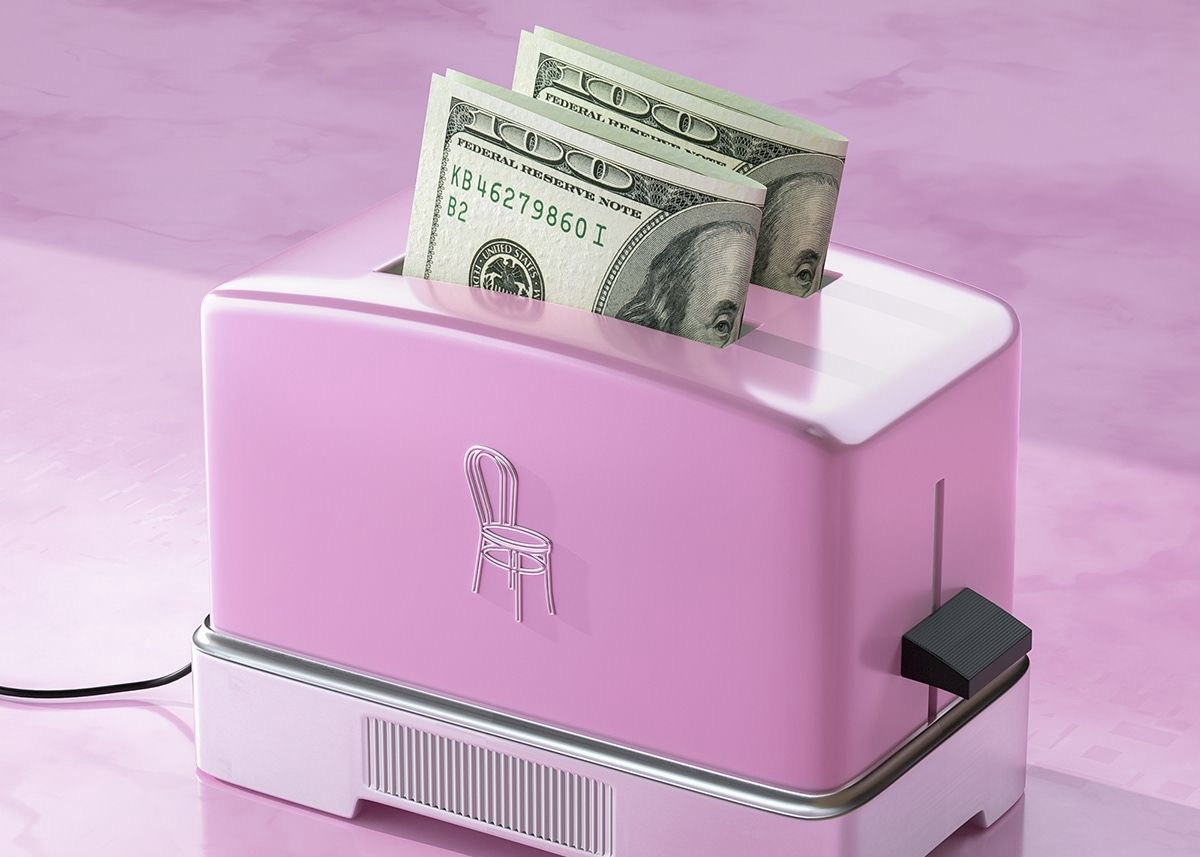One of the biggest roadblocks I faced when starting out as a freelancer wasn’t finding clients, it was figuring out how much to charge.
I spent months wondering if I was undercharging (I was), if I was scaring people away (maybe), and if I was ever going to make consistent income without burning out (again, I was). And if you’re here reading this, you’re probably in the same boat.
Let me tell you now, pricing doesn’t have to be guesswork.
In this blog post, I’m breaking down exactly how to price your freelance services using a proven method that starts with your income goals and works backward. I’m also giving you access to my Freelance Rate Calculator (yes, the same one I personally use), plus a tracker to help you keep tabs on your projects and monthly income.
Let’s dive into the strategies, tools, and mindset shifts that will help you stop undercharging and start charging what you’re worth.
Why Pricing Your Freelance Services Is So Hard
If you’ve ever Googled “How much should I charge as a freelancer?” and left more confused than when you started, you’re not alone.
We’re bombarded with conflicting advice: charge hourly, no charge per project, no wait, create packages. And don’t forget to add tax, downtime, expenses, admin time, your dog’s birthday…
Let me be honest, pricing is hard because freelancing is flexible.
That freedom is beautiful, but without structure, it’s also paralyzing. When you’re used to a job telling you how much your time is worth, deciding your own rate feels like building a ladder in the dark.
But there is a formula. And it starts with you.
The Most Common Pricing Mistakes Freelancers Make
Let’s call these out:
1. Undercharging Out of Fear
You don’t feel “experienced enough” so you price like a beginner forever. Reality check: clients aren’t just paying for your skill. They’re paying for your time, your brain, your energy, and your outcomes.
2. Charging Hourly When You Shouldn’t
Hourly pricing punishes you for being fast. If you’ve spent years mastering your skill, you shouldn’t be paid less for being efficient.
Not Factoring in Real Life Costs
You’re not just working 40 billable hours per week. You’re managing emails, marketing, admin, revisions, breaks. That cuts into your “real” time.
3. Not Linking Pricing to Lifestyle
Do you actually know how much you need to earn each month to live the life you want? (That’s where the calculator comes in.)
I made all these mistakes, which is why I created a system that helps you price with clarity and without panic.
How to Price Your Freelance Services the Smart Way
Let’s simplify this. Pricing should start with your income goal, not the market. Here’s how to reverse-engineer it:
1. Set Your Monthly Income Goal
Decide what you actually want to take home after business expenses, taxes, savings. Let’s say that’s $2,500/month.
2. Calculate Your Business Expenses
Subscriptions, software, WiFi, banking fees—anything that keeps your business running. Add this to your total monthly need.
3. Estimate Billable Hours
If you have 160 working hours in a month, but only 60 are actually billable (the rest go to admin, marketing, etc.), use 60 in your formula.
4. Divide & Conquer
Divide your income goal by your estimated billable hours. That’s your base hourly rate.
This is exactly what the Freelance Rate Calculator inside the Vault does for you. It takes your goal, business costs, and work availability and shows you your hourly and project-based rates.
You don’t have to second-guess anything.
Hourly vs. Project-Based Pricing: Which One Works?
There’s no one-size-fits-all here, but here’s what I recommend:
Hourly is great for open-ended tasks, consultations, or retainer work. Project-based is ideal for well-defined deliverables like brand identity, websites, or course creation.
The calculator includes both, so you can choose what fits your service.
If you’re not sure how to structure your freelance packages, you might want to check out my post on creating high-value client offers.

Rate Calculator + More Tools that will help your finances
✅ Freelance Rate Calculator (Google Sheets)
Monthly income goal breakdown Billable hour estimator Hourly + project rate calculator
✅ Income & Project Tracker (Notion)
Log every client, project, and payment Keep an eye on scope creep and actual profit
✅ Proposal Template, Contract Sheet, Onboarding Checklist
Everything you need to look like a pro from day one.
You can purchase everything in the store, but you can get the contract sheet and onboarding from the freebie vault.
Tips to Charge Strategically, Not Emotionally
You know what your base rate is. But don’t stop there.
Here’s how I adjust my pricing with intention:
- Add a Premium for Rush Projects
Tight deadline? That costs more.
- Price Based on Value, Not Time
If a design increases conversions or brings in revenue, charge based on impact, not hours.
- Raise Your Rates Over Time
As you grow, your prices should too. Every 3–6 months, review what you’re charging.
- Get Feedback
Ask past clients what made them hire you. Was it speed? Results? Reliability? Lean into that.
These are the kinds of lessons I also explore on TikTok @beinghauwa, so if you’re not already following me there, come hang out.
Bonus: Track Your Growth with the Project Income Tracker
Most freelancers forget this part. They set a rate, but never track what they actually earn.
The tracker makes it easy to:
- See how many projects you’re taking on
- Track income per client
- Review actual earnings vs your rates
Once I started tracking religiously, I could finally stop guessing why I was tired and broke. Get your project income tracker here.
Want to take this a step further? My 2025 Full Focus Planner (available separately) helps you track long-term income, habits, goals, and productivity in one gorgeous system. But honestly? Start with the free tracker and build from there.
Final Thoughts: You Can’t Build a Premium Business on Random Rates
If you want to freelance full-time (or even part-time), you need systems. Not vibes.
Pricing isn’t about picking numbers that feel good. It’s about:
- Knowing your minimum sustainable rate
- Packaging your value clearly
- Charging based on real strategy
My Shop has all the templates I wish I had when I started. They’re not magic, but they’ll give you the structure you need to grow with confidence.
👉 Get your rate calculator here and finally stop guessing your rates.
You deserve to be paid well for the value you provide. Let’s make sure your rates reflect that.




Leave a Reply